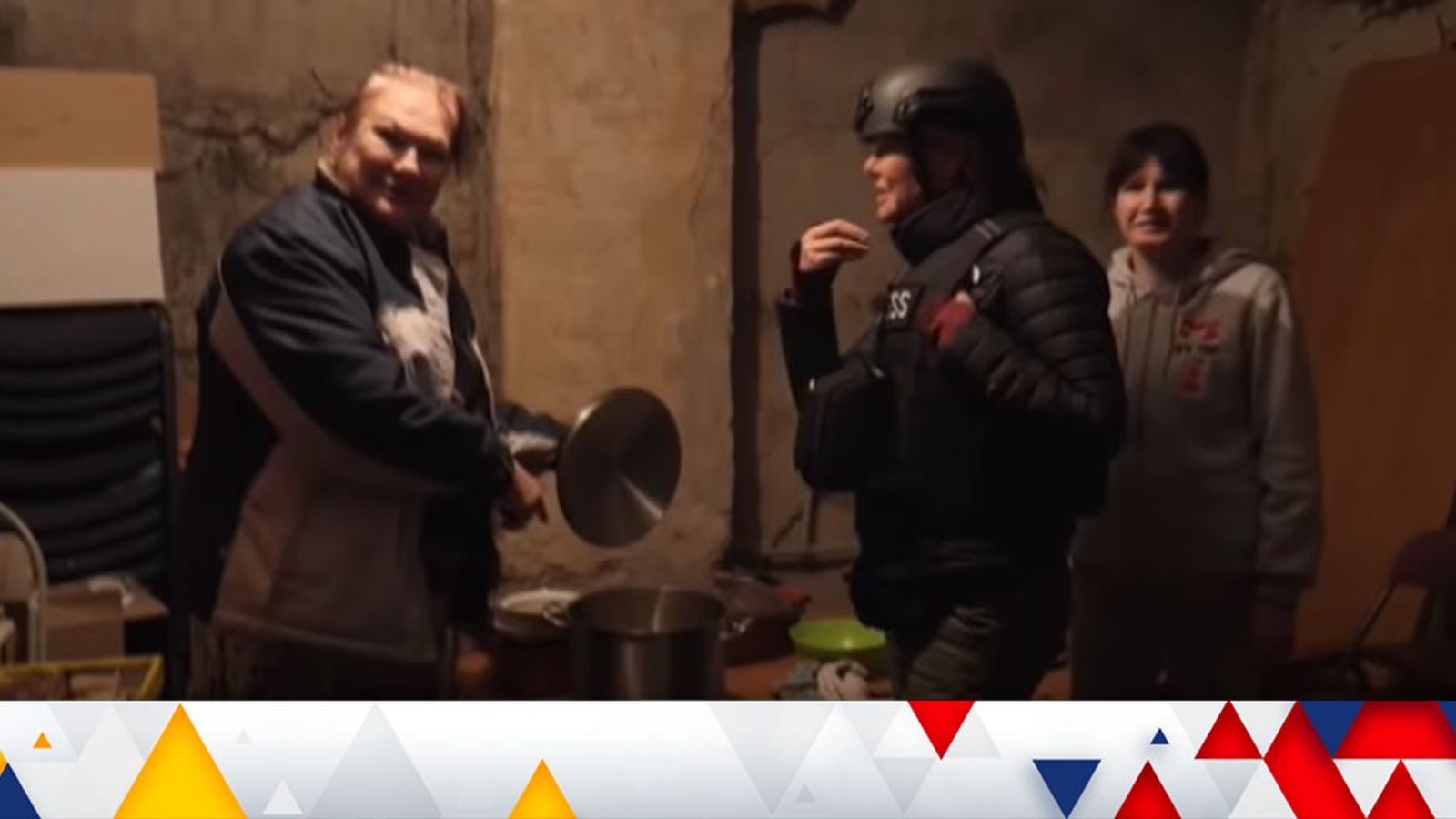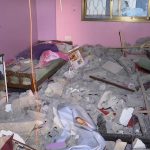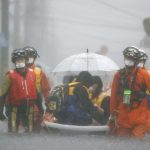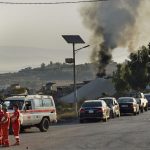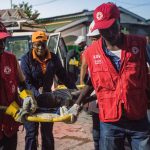They are not military medics. Just ordinary doctors and nurses who, two weeks ago, were dealing with births, broken bones and the natural medical challenges you’d find in any community.
Now they’re patching together bodies blown apart by bombs and bullets.
An old, what looks like a Soviet-era car, comes screeching into the hospital nearest to this frontline on the northern edges of the Ukrainian capital.
There’s a soldier stuffed into the tiny boot and as he’s helped out by the waiting emergency workers, he drops his weapon on the ground in panic. He looks pale and shocked.
Their position has just been shelled. It’s a couple of kilometres away from where we are. The front door of the hospital is shattered with bullet holes.
“They respect nothing,” the hospital director tells us.
We see the random and indiscriminate hits as we walk around the shattered homes, now abandoned.
Ukraine war: Britons to be asked to welcome Ukrainian refugees into their homes
Ukraine war: Russian soldiers edge closer to Kyiv – as satellite images show large convoy ‘has dispersed’
Ukraine war: Alexander Litvinenko’s widow Marina says UK should ‘absolutely’ waive visas for fleeing refugees
The destroyed farmhouses are just outside the Kyiv city boundaries but within the Kyiv Oblast (region). There is a backdrop of artillery booming constantly.
“Be quick,” the emergency worker we are with, cautions us.
His house is five houses away from this shell of a home we are looking at. The roof is off and a huge mangled piece of corrugated metal is now hanging on the washing line where family clothes would have been pinned up to dry a fortnight ago.
The Kyiv city authorities say half of the city’s population has now fled the capital where nearly three million normally live.
We walk down steps to a shadowy, dimly lit underground world in a small community on the northwest city limits and find women busy looking after and comforting a group of elderly folk who can’t or won’t leave.
They are frightened and a young woman called Natalia is spending a lot of time hugging and comforting them.
There are about 12 camp beds set out in the room they are in. The elderly are already tucked up in blankets to keep warm.
“We’ve tried to keep it warm down here,” Natalia says.
There are heaters in every room and they’ve turned several of the rooms into camping dormitories lined with rugs, the beds all pressed up against each other to accommodate as many people as possible.
“We just keep going, waiting for victory,” the woman charged with cooking tells us. “And try not to cry.”
